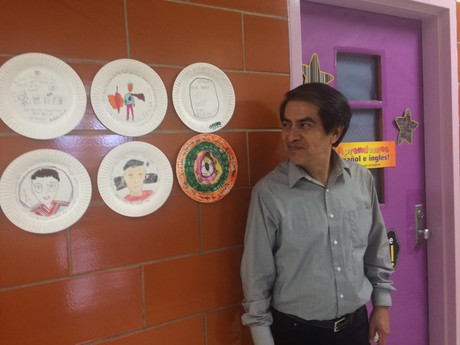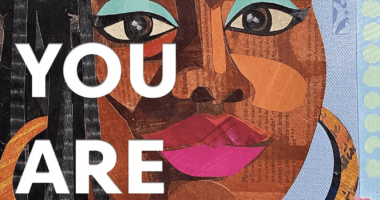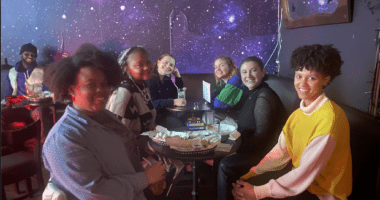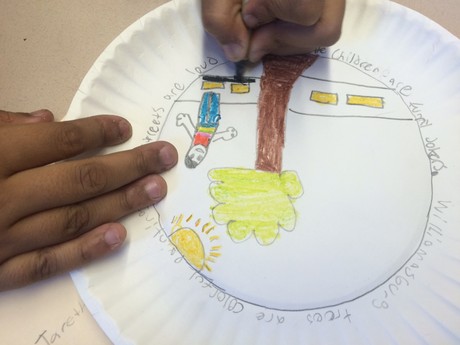
In the first class with the third graders at PS 84 José De Diego School, teaching artists Phyllis Capello and Felipe Galindo talked about oral tradition and poetry. Their third graders created “passport-style” work folders in which they drew a self-portrait, wrote their names, DOB, where were they born, talents, etc. They were asked to write a line telling one thing with which their heart is “friendly.”
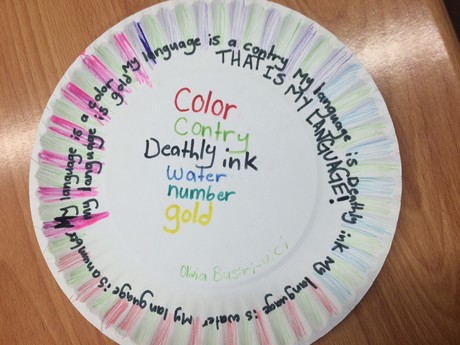
“My heart is friendly…with gymnastics’ flips; …with soccer tricks.
My heart is friendly with fashion; with dancing; with people being kind to each other…”
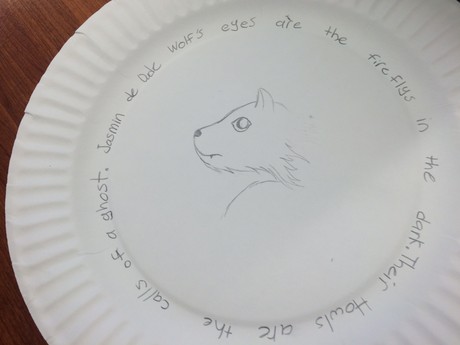
As an introduction to poetry, Felipe and Phyllis spoke about oral tradition and shared the poem: “House Song to the East.” This Navajo poem/chant is a special, some might say sacred, dialogue with nature, in which the ancients teach how a place exists for everything on our planet, a delightful house for water, earth, sky, dawn, pollen.
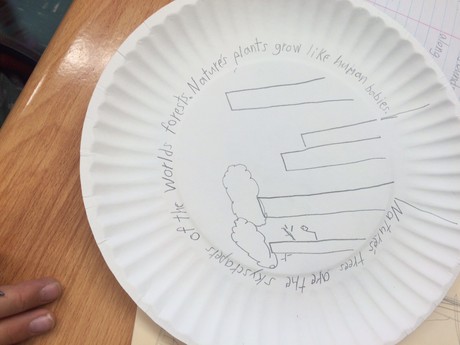
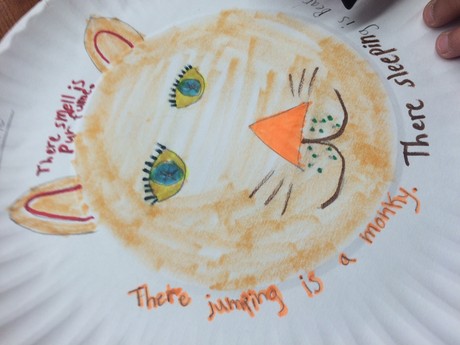
House Song to the East
Far in the east, far below, there a house was made;
Delightful house.
God of Dawn, there his house was made;
Delightful house.
The Dawn, there his house was made;
Delightful house.
White Corn, there its house was made;
Delightful house.
Soft possessions, for them a house was made;
Delightful house.
Water in plenty, surrounding, for it a house was made;
Delightful house.
Corn pollen, for it a house was made;
Delightful house.
The ancients make their presence delightful;
Delightful house.Before me, may it be delightful;
Behind me, may it be delightful;
Around me, may it be delightful;
Below me, may it be delightful;
Above me, may it be delightful;
All, may it be delightful.
During the discussion of how ancient cultures used spoken language to pass on art and information, one boy (Axel) raised his hand:
“Ms. Capello,” he said, “I’m Navajo!”
Axel lives in Williamsburg, and has family in Arizona, close to the Grand Canyon.
Later, as he was working on his folder, he mentioned how two of his great, great uncles were “code-talkers,” although he wasn’t sure exactly what it meant. Phyllis explained, briefly, how in times of war, governments need ways of sending messages enemies cannot decipher, that Navajo soldiers had used knowledge of their native language to help send these vital messages. She suggested he talk with his family about it, and that he do research.
Phyllis asked Axel if he knew how to speak any words in his family’s language. He knew how to say: “How do you do?” The TA’s recorded his voice speaking the phrase in his family’s ancient language. It was like listening to an ancient song.
“Hard nand tay.”
What a good day for oral tradition!
